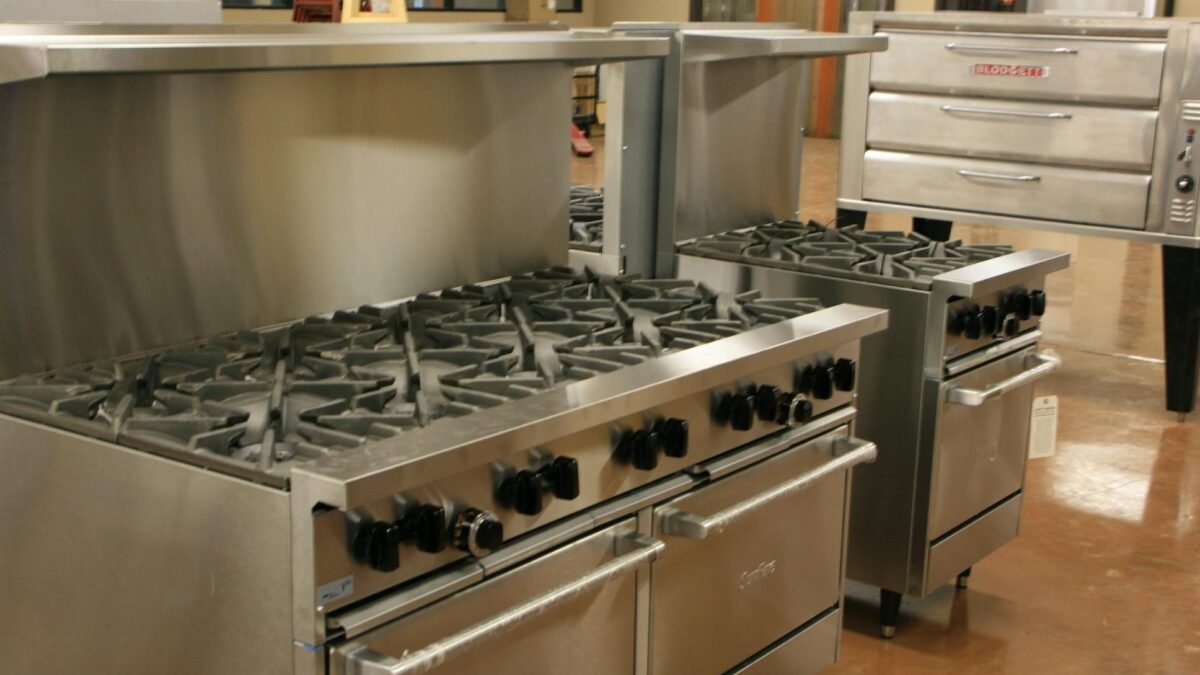As a restaurant owner, you probably know the consequences of broken equipment. The dinner rush is in full swing. Orders are flying in, the air is thick with the aroma of sizzling steaks and bubbling sauces, and your kitchen crew is ready to serve delicious food to your customers. But then, disaster strikes.
Your walk-in cooler starts emitting a concerning warm hum, your dishwasher lets out a suspicious grinding noise, and the oven stubbornly refuses to reach the desired temperature for your signature dish. This malfunctioning during peak service can be a restaurateur’s worst nightmare.
However, if you want to avoid such a situation, you need to be able to identify the signs that your food service equipment needs a helping hand. So, let’s find out the five telltale signs to call a restaurant kitchen repair technician.
The Cost of Ignoring Equipment Problems
While the temptation might be to push through a minor equipment issue during a busy service period, ignoring these warning signs can be a recipe for disaster in the long run. Here’s why taking a proactive approach to repairs makes sound financial sense:
- Increased risk of breakdowns.
- Complete equipment failure.
- A higher repair cost.
- Pose serious safety risks to your staff and customers.
5 Signs You Need a Food Service Equipment Repair Technician
Here are 5 crucial indicators that it’s time to pick up the phone and contact a technician:
1. Performance Problems
Is your equipment failing to perform at its best? For instance, your oven struggles to maintain the desired temperature, leading to unevenly cooked food. Your walk-in cooler fluctuates in temperature, jeopardizing the freshness of your ingredients. Your dishwasher isn’t cleaning dishes effectively, leaving them with food residue.
These performance issues can have a cascading effect, impacting food quality, customer satisfaction, and even potential health code violations. So, it’s better not to gamble with the integrity of your food service. Immediately hire a qualified technician to diagnose the problem and ensure it’s operating optimally.
2. Unusual Noises
A well-maintained kitchen should buzz with sizzling pans and bubbling pots, not the strange noises from equipment. Be mindful of the grinding, banging, or clanging sounds, as they could indicate loose parts, worn-out bearings, or other internal issues.
Moreover, you should also be careful about excessive hissing. While some hissing is normal for gas-powered equipment, an unusually loud or constant hiss might signal a gas leak.
These unusual noises are your equipment’s way of calling for help. Don’t let them become a background soundtrack, and address them promptly to avoid costly repairs.
3. Leaks and Drips
Water leaks and drips can pose a serious threat to the hygiene and safety of your food service operation. Water damage weakens floors and walls, while damp environments create breeding grounds for mold and bacteria, which can wreak havoc on your hygiene standards. It can compromise food safety and potentially violate health codes.
Leaks and drips also deserve immediate attention because of potential electrical hazards. Even a small leak near electrical components can pose a serious electrical hazard. Shutting down equipment and contacting a technician immediately is crucial to prevent accidents and injuries.
Besides, leaky faucets, refrigerators, or dishwashers waste precious water. It could mean a waste of resources that may drive up your utility bills. A prompt repair can help you conserve water and save money in the long run.
4. Frequent Error Messages
Modern food service equipment is often equipped with digital displays that provide error codes or messages. While some may be simple to decipher (e.g., “Low Water Level”), others might require a more skilled interpreter. These messages can be cryptic warnings of hidden issues, and trying to decipher them yourself can be a gamble.
It can cause unnecessary downtime and loss of revenue. So, consult a technician who can translate the message and address the problem efficiently, ensuring your equipment continues to function smoothly.
5. Burning Smells
The distinct and unsettling scent of burning plastic or electrical wires wafting from your equipment is a red flag that demands immediate attention. It signifies a potential threat lurking beneath the surface, and ignoring it could have disastrous consequences.
This burning smell can be a harbinger of several serious issues:
- Electrical problems
- Overheating of internal equipment parts
- Grease fire
Don’t wait and see if the smell goes away. Take action to prevent a potential disaster and prioritize the safety of yourself, your staff, and your restaurant.
Avoid Chaos by Hiring a Restaurant Kitchen Repair Technician
A smooth-running kitchen is the backbone of any successful restaurant. But even the most carefully maintained kitchen equipment can experience glitches and malfunctions. That’s why it’s important that you gauge problems early and consult the right technicians to avoid kitchen chaos.
If you are looking for reliable equipment repair services in Michigan, Kelly Equipment Services is the ideal option. The company has earned a well-known status for delivering high-quality services for commercial kitchens. These services range from setting up the kitchens to resolving issues that may arise during operation. So, consult KES today!


